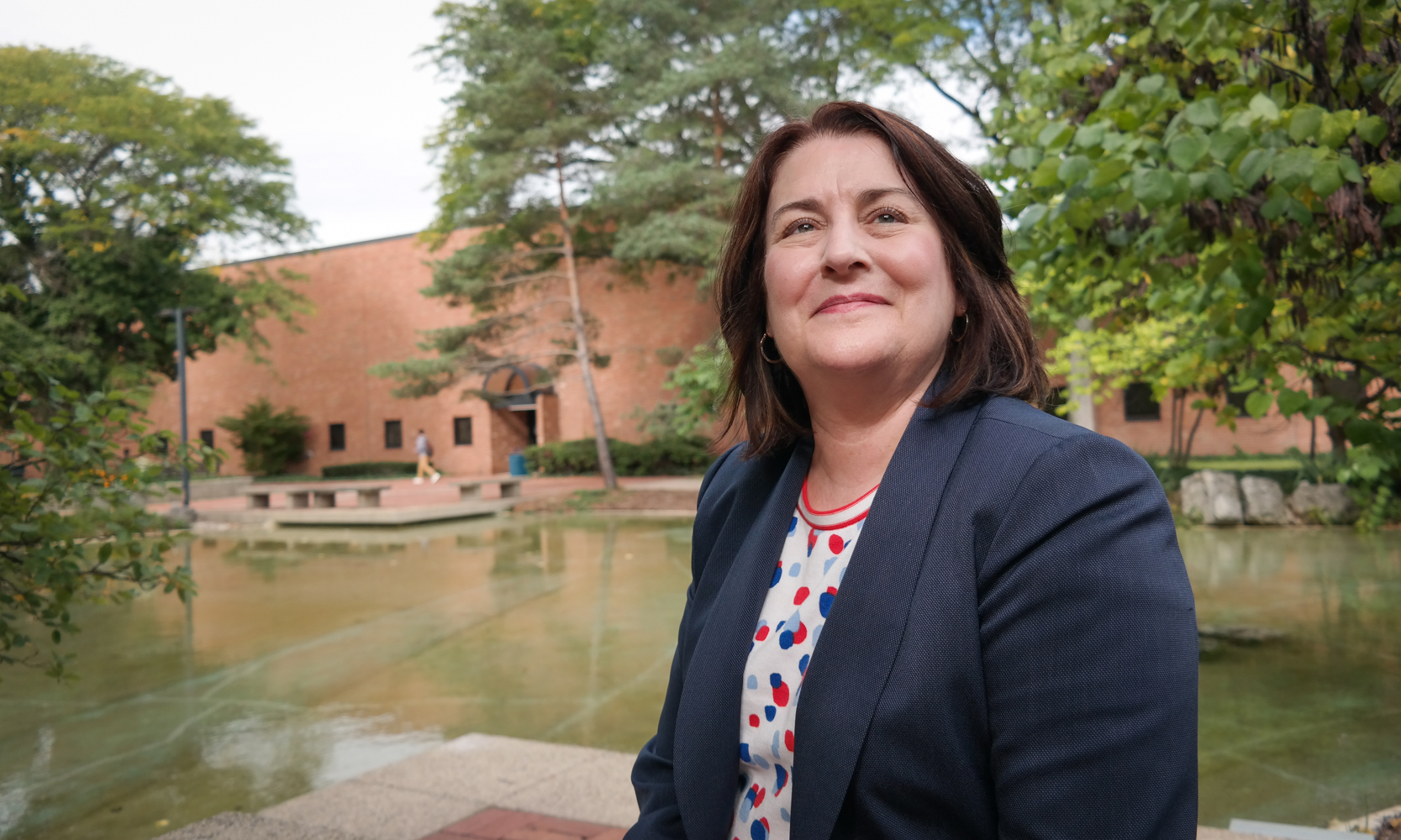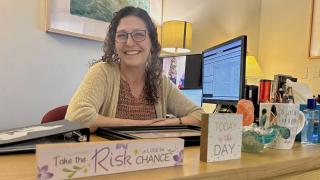
Becky Chadwick isn't blind to the fact that not everyone looks forward to a call from the Office of Institutional Research — a data-driven unit within the university that helps with everything from maintaining accreditations to identifying challenges to student success.
“I think sometimes people fear the data and that their numbers might not be what they anticipate,” said Chadwick, who began as the university’s executive director of institutional effectiveness and research on Oct. 1. “But I don’t want people to fear the results. It’s about continuous improvement and collaboration. As good as we are, there’s always a way we can do things a little better. And one of our tools for doing that is to take an honest look at the data without worrying about what we might find.”
She delivers this philosophy with the cool neutrality of a social scientist, which is, in fact, a big part of who she is. In addition to serving in various roles within university administrative offices, including at UM-Dearborn and most recently at neighboring Henry Ford College, Chadwick has maintained a parallel life as an academic. For a decade, she taught graduate classes in education research on the UM-Dearborn campus, and it’s clear the methodical, investigation skills she imparts to her students also drive her own approach to institutional research.
A few years back at another institution, for example, faculty reached out with concerns that the large number of dual-enrolled students weren't ready for college-level work. So Chadwick’s team looked into it, crunched a few numbers and unearthed a surprise conclusion.
“It turned out the dual-enrollment students were doing as well if not better than traditional freshmen,” Chadwick said. “So we circled back and discovered that the classes where faculty were having problems had high concentrations of dual-enrolled students. And not only that — but there were high concentrations from the same high schools. So essentially we discovered the classes were stacked with a bunch of friend groups, and they were bringing that high school social energy with them to class.”
In other words, the issue was behavioral, not academic. Consequently, so was the solution: “We put caps on the number of dual-enrolled students in each section, which didn't decrease the performance, but the faculty had an easier time managing their classrooms.”
Chadwick says this is a classic example of how institutional research can be used to untangle the mysteries of student success. (Another case in point is UM-Dearborn’s own Gateways to Completion initiative, which identified and then redesigned several core classes students commonly struggle with early in their education.) But she also mentioned data can help put a quantitative edge on seemingly more qualitative issues — like how we recruit students or sell budget-conscious lawmakers on the importance of higher education.
“The reality is students are savvier than ever when it comes to shopping for a college,” Chadwick says. “So when we show them what our alumni are earning out in the labor force, or enrollment rates in graduate programs, or how they’ll carry less student debt if they choose us, it helps tell our story. Or when we go to the legislature and lay out in detail the economic impact our graduates are having in southeast Michigan; or even how a more educated population leads to a decrease in crime, these arguments can be very compelling.”
Going forward, Chadwick says “predictive analytics” will be one of the next big revolutions in institutional research. That will allow universities not only to come up with retroactive solutions to current problems, but to anticipate them.
“Ideally our information would be so timely, it can lead to interventions,” Chadwick says. “For example, let’s say we know that if a student comes in for counseling three times in a semester, there’s a greater likelihood of them dropping out. At the point we see that happening with a student, we could step in and figure out what kind of additional support they need. The ultimate goal would be that on day one of a student’s career, we can take all these variables and have a pretty good idea where they might struggle, why and what’s going to keep them in the game.”
She says that level of predictive power still lies somewhere in the future. But don’t be surprised if we’re getting there by the time Chadwick concludes what she expects will be “the last stop” in her career. In any case, it’s obvious she’s not approaching it with the casualness of a victory lap. Her enthusiasm is all the data you need to see that.




